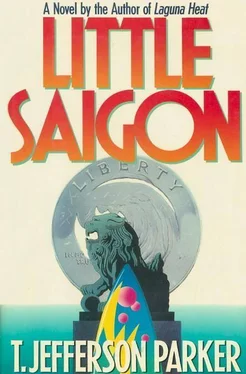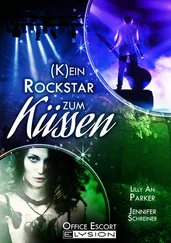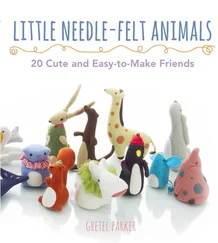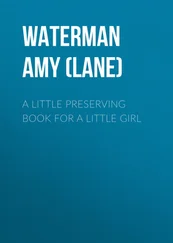She watched him come up the walk. “I’m busted,” she said. “These are for you. For bringing back Blaster.”
As if on cue, the dog nosed around a corner, pissed on Frye’s mailbox stand, and looked at him with absolutely no recognition whatsoever.
“Your dog’s a moron. I love him.”
“Careful, He’s my main man.”
“Wish I had one just like him. Thanks. Beautiful flowers.”
Frye opened his door and let them in. When she walked past him he could smell the alcohol.
Cristobel sat on his couch while Frye put the flowers in a vase. He watched her while he trimmed the stalks. “You’ve got a choice between tea and straight vodka.”
“Tea.”
They sat in the living room. She took off her sunglasses. She looked at Frye, then at the flowers, then outside for the dog, then at the coffee table in front of her. “So, this is it.”
“You nervous?”
“Not a bit. Why?”
“Your eyes are. Don’t worry, I’m done with bad opening lines.”
“I’d prefer to stay off that topic just now.”
“Can do.”
She drank off half the tea and checked her watch. “How’s the case progressing? Any news about Li?”
Frye shook his head. “Just a lot of strings that don’t make a rope.”
“Like what?”
“Stuff that she and my brother were into. Things that... don’t look good on a résumé.”
“Cops have a way of Ending out.”
Frye wondered what kind of bureaucratic rack the cops had stretched Cristobel on. Four men. Inside, Frye shuddered. “I hear the cure’s worse than the disease, sometimes.”
“I wouldn’t go that far.”
Frye looked at her, wondering just how you handle a case like this. “All I feel qualified to say is the wrong thing.”
“How about saying nothing?”
“Is that best?”
“I’m afraid so.”
“What if at some point, just say for the sake of argument, that I wanted to get to know you better?”
“Skate over the silences. They’re hard as ice.”
Frye nodded. “I found this bird once that blew out of a tree in Santa Ana. I couldn’t find the nest, so I kept the bird. Little fleshy guy with no feathers and big eyes, like something from outer space. Anyway, I kept him in a tissue box and fed him with an eyedropper every two hours.”
“What happened?”
“He died after the third feeding.”
“What’s the moral?”
“I’m not sure. It’s been a bad couple of days.”
Cristobel smiled, but it wasn’t happy and she didn’t seem amused. “I’ll go now. I just wanted to say thanks.”
Frye walked her to the door. She stood in front of him with her arms crossed and her sunglasses back on. “This isn’t easy for me. I’ve never been in this position before. I hate it.”
“You know where I live.”
“Is that an invitation?”
“Yes.”
She reached out and touched his face, then brought her mouth to his. Frye felt her purse fall off her shoulder and tug down on her arm. It was one of those kisses that seal off the outside world and make a better one, just between the two of you. His brain rang. His ears got hot. She was there, but tentative, willing but controlled. She sighed into him, then stepped back.
“I’m sorry,” she said.
“Don’t be.”
She touched his face again. “You don’t understand.”
“Maybe I don’t.”
“It’s quite a way from point A to point B,” she said. “But I like long, straight lines.”
Frye smiled. “I’m going to the fights tonight. Want to come?”
She looked at him uneasily. “I was going to see Steve Martin’s new one. But, well, okay.”
“Pick you up at seven.”
Cristobel nodded. Blaster bounded to her side and led her down the driveway toward her Volkswagen.
He sat at his kitchen counter and opened the card. It had a picture of a wave on the outside, and Frye could readily imagine himself tubed in the thing. It looked African — Durban, he thought, or Cape St. Francis. Inside it said: “Thanks. You asked me on the beach what I wanted. I want a reason to believe in anything. Best — Cristobel.”
He sat on the patio with Stanley Smith’s manuscript in front of him. He checked his watch. Two hours until fight time at the Sherrington. I’ll explain to Mr. Mack that I can retract the article, print an apology, anything he wants. A man needs work. And I could use a press pass, a WATS line, and some movie passes.
He found his place in Li’s story and began reading.
Huong Lam, Lt. Frye and I began to meet once a week in the courtyard by the plantation. Often, Private Crawley would attend. Sometimes Tony, Lam’s liaison officer, would be present. The lieutenant always brought a notebook but rarely wrote anything in it. He always seemed pleased by my information. Sometimes it was specific, such as the names of Viet Cong leaders, the places they could be found, the exact location of new tunnel entrances, which were always being built. Sometimes all I had was a feeling that something was about to happen. More than once I was correct. I would sense from the nervousness of the fighters I entertained that something large was to happen.
At the end of our fourth meeting, while Lam was walking ahead of us to the jeep, Lt. Frye put a piece of paper from his notebook into my hand. When I read it later that night by my candle, it said: “Li — You are beautiful to me.”
I thought of him as I lay on my plank bed that night. I could see his eyes, blue as the feathers of a chai bird.
About this time, Lam began to make advances toward me. On our walks to meet the jeep, he would attempt to take my hand. He would often arrive at my hut before the scheduled time. He looked at me in certain ways. A woman knows. He brought me a bunch of lilies once and they were quite lovely, but I took them under a feeling of obligation. My feelings toward him were good, but not of love.
Soon, we began to bring food to our meetings. I would bring red yams, tender bamboo, and eggplant. Lam would always bring French champagne — two bottles — and he never would say where he got it. I know he spent a lot of money for it on the black market. It gave him pride to provide such a luxury. Lt. Frye brought fresh bread and often a meat of some kind I know was expensive. Then Lam started bringing three bottles. He saw this as a competition with Lt. Frye. We would spread a canvas tarp on the ground if the weather was good, and if it was raining we would go into the cottage.
Frye saw the three bottles of French champagne sitting on Li’s dressing room table. He wondered.
There was always a time when they would ask me to sing. I wrote songs for these occasions. They were the sentimental love songs that the Viet Cong no longer allowed me to perform. These songs, at the beginning, were written to no man in particular, but I could see they brought great pleasure to both Lam and the lieutenant. That brought me pleasure too. Sometimes I could see a very quiet but deep love pass between these men. They each seemed to be aware of the thin string from which life dangles in war. They were far apart in many ways, but the war, just as it tore so many apart, brought some together. I’ll always remember the way that, after we drank all our champagne one afternoon, Lt. Frye put his silver-wave necklace around Lam’s neck and hugged him. They were alike in one important way. Each man was silent and deep and would never tolerate even a tiny betrayal. They were like oceans. With Lt. Frye and Huong Lam, you were either an enemy or a friend. You either floated on their calm surface, or you sank under terrible waves.
Entertaining the Communists became easier. They responded well to me. The “theaters” were always makeshift and often underground. The caverns were small and poorly lit, and I was limited to three-minute songs so that the ventilation shafts could be opened in silence to give us air. Sometimes the sound of artillery or bombs would drown out the music. One time I remember the famous American, Bob Hope, was performing for the troops above ground, while I sang underground, not a half mile from him. There was great glee in the tunnels at this situation. But life was hard and dirty there, and my audiences could never applaud or sing with me. I resented being given material to sing, but the longer the war went on, the more I was forced to perform songs that would rally the Communists to victory. The good thing about being an entertainer was that I was moved from tunnel to tunnel, from camp to camp, from crater to crater to perform. I was always able to gather new information. I never worried that I would be found out, because by the time the Americans could take action on my intelligence, I was gone and not suspected.
Читать дальше












